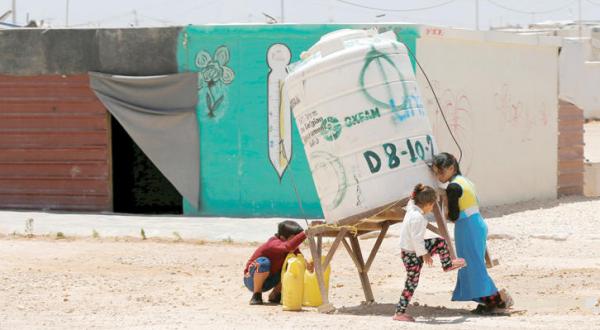Salaam Asha’ra and his family left Syria in early 2013, when no one expected that the civil war in their country would last for years without any signs of subsiding, creating the worst refugee crisis in the world since the end of World War II.
Asha’ra’s family was among the first families that ended up in the first Jordanian refugee camp; the Zaatari camp. This camp is also currently the largest refugee camp and more than 80,000 Syrian refugees live there. Its area has grown over time and Asha’ra’s small family is part of a huge number of Syrian refugees who migrated from Syria. More than 4.8 million Syrians have left their homes since 2011 and 655,000 of them went to Jordan.
At the same, international relief organisations are suffering from a chronic shortfall in funding and aid. The aid appeal launched by the United Nations this year seeks to secure $ 4.55 billion for Syrian refugees and their host communities, but by the month of April only a quarter of this amount had been raised.
Donor countries are trying to shift the focus of the funding from urgent humanitarian assistance to long-term development projects in regional host countries as part of efforts to discourage refugees from immigrating to Europe. However, the creation of education programmes and job opportunities takes a long time.
In Jordan’s Zaatari camp, Asha’ra’s family which consists of him, his wife Huda and their six children are trying to construct a new home according to an investigation carried out by the “Associated Press” agency. They live in two trailers that they connected with a tarpaulin canopy. Their living quarters are made up of two bedrooms, a living room, a bathroom and a kitchen.
Asha’ra owns a household goods store in Zaatari’s bustling market and at one point served as a community policeman at the camp.
In his spare time, the 43-year-old writes poetry and uses his verses to keep the memory of Syria alive for his children.
All of his children, except Mohammad who is two years old, were born in Syria, and he hopes his poetry can preserve the memories that they have of their country.
Asha’ra doesn’t expect to return home soon. He hopes his children stay at school, marry and prosper at the camp.
